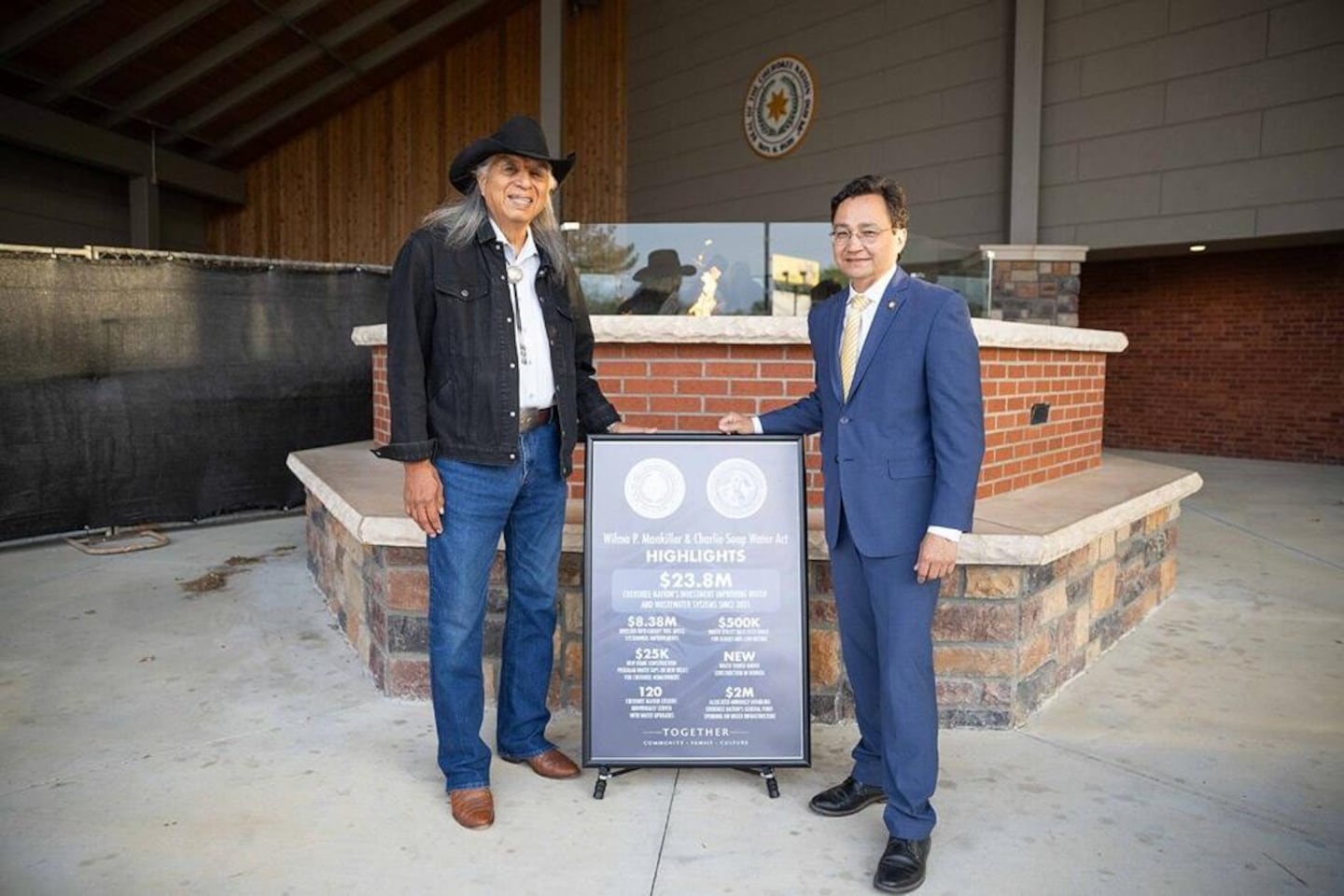TAHLEQUAH, Okla. — The Cherokee Nation is celebrating the four-year anniversary of the Wilma P. Mankiller and Charlie Soap Water Act which has brought $23.8 million worth of investments to increase water quality access for citizens across the reservation.
The act was signed into law in April 2021 and was named to honor the legacy of late former Principal Chief Wilma Mankiller and her husband Charlie Soap. Cherokee Nation said they were both crucial in water access projects in the 1980s, including the Bell water line in Adair County.
The Bell water line is part of the Cherry Tree Water District, which was one of the areas in need of repairs and maintenance. Through the act, the Cherokee Nation were able to invest $8.38 for improvements to water lines used by more than 800 Cherokee homes.
Cherry Tree Water District is owned and operated by the water district. Cherokee Nation doesn’t own or have any operational control over the system.
“Four years ago, the Cherokee Nation took a significant step forward with the Wilma P. Mankiller and Charlie Soap Water Act, a measure inspired by the enduring legacy of two visionaries who dedicated their lives to uplifting our communities. Today, we reflect on the progress we’ve made and the profound impact this act has had on the lives of our Cherokee citizens,” Chief Hoskin said. “From the $8.38 million investment in the Cherry Tree community to the construction of a new water tower in Nowata and ensuring access to clean water for 120 citizens identified through our water survey who do not have adequate access to water, these investments represent far more than infrastructure—they represent a commitment to health, safety, and dignity for our people.”
Half a million dollars from the act were used to help elders and other people in need with water utility bills.
In Nowata, a water tower is being built with the help of the act and 120 Cherokee Nation citizens, identified in a survey last year through the tribe, will be directly impacted by the water upgrades.
“This truly is helping families across our reservation with good, safe water, something many of us take for granted but affect so many of our citizens especially in rural communities,” said Deputy Chief Bryan Warner. “The true spirit of this work reflects ‘gadugi’—coming together as one community. The anniversary is a moment to honor not only the legacy of Chief Mankiller and Charlie Soap but also the collective efforts of our communities, departments, and leaders who have worked to achieve this.”
The act also allocates a minimum of $2 million annually, which doubles the Cherokee Nation’s general fund spending on water infrastructure projects.
“It was an honor to work with Chief Mankiller in those early days getting water to these communities. At the time we didn’t know we were making all of these impacts as we were just working, putting water lines in, which I enjoyed tremendously,” Charlie Soap said. “It’s interesting to watch all the progress the Cherokee Nation is making. I want to thank you for all you do for our people and supplying the need for water is a tremendous responsibility. Thank you for doing what you’re doing and appreciate this recognition and for Chief Mankiller. We never thought we would reach this place where so many people have water.”
Chief Hoskin also announced an increase to spending under the act by $500,000 with the help of the tribe’s Public Health and Wellness Fund Act revenue.
The act also requires biennial studies to identify citizens who lack access to reliable water and come up with plans to address these concerns.
Citizens are also asked to participate in surveys so that the Cherokee Nation can better identify areas of need when it comes to water quality and access.
“We are reaching out to all of those on how best to serve them,” said Michael Lynn, Director of Transportation and Infrastructure.
The Cherokee Nation has allocated $65 million for the Mankiller Soap Water Act projects and $23.8 million of that amount has been spent so far. For the full report, click here.








